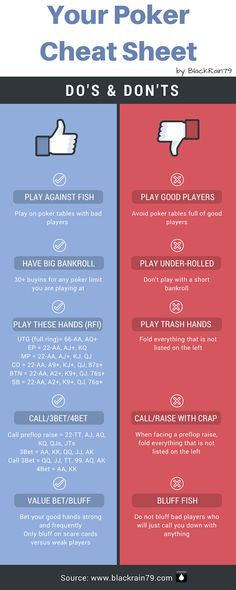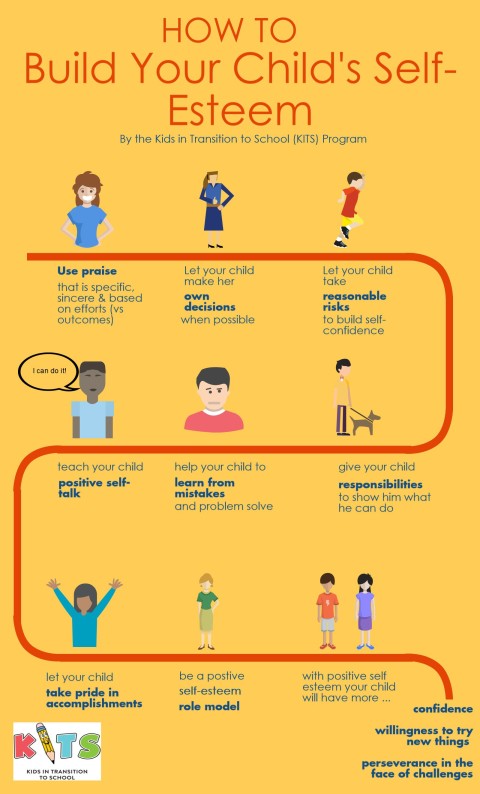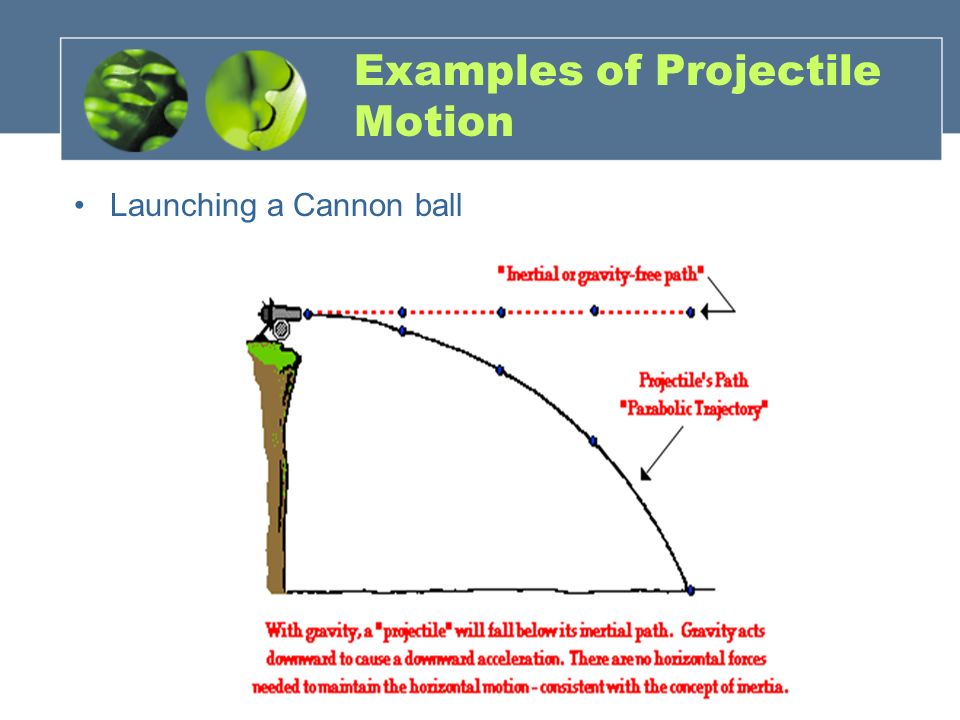How to sell your child
How to Sell Your Child to the Gypsies
It’s important to be aware that there are procedures here that will ensure a smooth transaction as well as top dollar when it comes to finally selling your kids to a troupe of musically oriented nomadic Romanians. A haphazard approach to child sellage compromises the satisfaction of the exchange, both from a return-on-investment standpoint and in the personal sense of a job well done.
Because really, what did you HAVE the kids for if not to provide for you?
And why wait until you are old and the kids are picking your nursing home? You don’t really want to do it that way. By then they’ll have power of attorney and they WILL remember that time you grounded them for cat frisbee.
So it’s really better to get what you can for them NOW, before they can legally move out and/or vote for legislation that might hamper this process further.
Step 1:
Appearance. Yes, as shallow as it sounds, how your children look will affect the price they fetch. It’s important that they look clean, but not entitled. Well fed but not greedy. Humble but not downtrodden. The band of gypsies in question is going to consider the manner in which your child will enhance the presentation of the caravan. Adorning a hoodie with ribbons is a good embellishment, as are bells on the Converse tennies.
Step 2:
Abilities. You need to think ahead for this one. As handy as it might seem to teach your children skills that make YOUR household run more smoothly, let’s face it, they’re not going to do those things ANYWAY. You will get a better yield, kid-to-gold-wise, if you teach them things that your typical traveling gypsy population will need. Camel grooming is always a good one, as is wagon-wheel fixing. More creative children can learn fire juggling and advanced tambourining skills.
Step 3:
Timing. This one is important! As tempting as it is – and it will be soooooo tempting – do NOT try to enter into negotiations for the sale of children immediately after you have discovered an iPod in the peanut butter or a freshly shaved chihuahua. You will NOT do your best haggling at this time! You will find yourself offering to PAY the gypsies to take them, and in your desperation you might even consider throwing in one of the family cars and/or DVD players to sweeten the deal.
You will NOT do your best haggling at this time! You will find yourself offering to PAY the gypsies to take them, and in your desperation you might even consider throwing in one of the family cars and/or DVD players to sweeten the deal.
People have asked me, “Lori, how do I know when my kids are ready for selling?”
The answer is both complex and multi-factorial (and those are totally DIFFERENT things). The formula is this: divide your child’s age by the number of times you have to remind them to put the seat down on the toilet (for boy children) or unplug their flat-iron (mostly for girl children but not always). Multiply the quotient by the number of weekly refrigerator re-stockings and then add the number of days you have needed to prepare scale model replicas of historical sites in the hour before the first period bell rings at school.
If the answer to that is >1, the time is now.
And if you have at any time in your child’s life needed to utter the words, “I’m really sorry, I’ll make sure to get your son’s underwear back to him by tomorrow” to another parent, the time is yesterday.
Happy bartering!
Like this:
Like Loading...
Posted in Humor and tagged This is totally a joke as I would never damage relations with gypsies by forcing our children upon them, Well this is even a bigger joke than that because except for that one incident with the food coloring I've never wanted to sell my kids to gypsies at all on by Lori. 63 CommentsCan You Sell Your House to Your Child? 8 Ways to Do It
Disclaimer: Information in this blog post is meant to be used for educational purposes only and does not constitute legal, financial, or tax advice. HomeLight always encourages you to consult your own tax advisor.
Want to sell your house to your child in exchange for a hug and a smile? If you aren’t careful, you may raise a few eyebrows at the IRS. As much as you may want to hand over the keys and keep financials within your family, you’ll need to treat the transfer as a smart business deal or risk increasing your tax liability.
If you want to sell or give your house to your child, you have options:
- Let your child inherit the house
- Conduct a deed transfer upon death
- Gift the house outright
- Finance your child’s purchase of the house
- Sell the house to your child at a discount
- Sell the house to your child but continue to live there
- Let your child assume the mortgage
- Use a personal trust
With the help of accounting expert Christopher Skinner, Attorney at Law, CPA, and A.J. Gross, CPA, E.A, we examine each option and its tax implications as of 2022. We’ve highlighted some of the best ways to transfer your family house from one generation to another, with the focus being paying as little tax as possible. So, keep reading for the most tax-friendly ways to sell your house to your child.
Option 1: Let your child inherit the house
If you live in your house until your final moments, your surviving relatives can inherit your estate, including everything you own minus your debts. This means, when you pass away, you can pass your house on to your child by including it in a valid will.
This means, when you pass away, you can pass your house on to your child by including it in a valid will.
However, when you transfer property after death, the government typically levies an estate tax, and often your child will only receive the house after the government pulls those taxes out of your estate. Fortunately, there is an exemption called the Unified Federal Gift and Estate Tax Exemption, which, in 2022, gives each person a $12,060,000 exemption to exclude from their taxable estate.
The recipient is only taxed on what remains after the exemption. So, if your estate is worth less than $12.06 million, you can pass on your house to your child, tax free, as part of your estate plan.
On top of that, your child can potentially avoid capital gains taxes when they decide to sell the inherited house down the line.
Although capital gains taxes apply to most capital investment, including houses, most people qualify for the primary residence exclusion. This rule allows a single filer exempt up to $250,000, and married couples to exclude up to $500,000 on returns from their main home. The capital gains tax is calculated based on the original cost of the house and the fair market value of the house at the date of the sale.
The capital gains tax is calculated based on the original cost of the house and the fair market value of the house at the date of the sale.
What’s more, if your child inherits your house, the stepped-up basis rule comes into effect. So, when you pass away, the cost of your house is “stepped up” to the market value of your house on the date of your death.
For Example:
If you bought your house for $200,000, its cost basis will be $200,000 the entire time you live in it. But, on the day you die, if your house appreciated to $500,000, its basis is “stepped up” to $500,000 and is no longer $200,000. So, if your child decides to later sell the house for $550,000, the taxed profit on the sale is only $50,000 ($550,000-$500,000), not $350,000 ($550,000-$200,000).
Your child takes home $550,000 in either scenario. But in the eyes of the government, they can use the stepped-up basis to pay on a profit of only $50,000 vs. a profit of $350,000. This can dramatically reduce the amount of capital gains your child has to pay.
Get an Estimate on Your Home's Value
It can be helpful to have an idea of your home’s value for estate planning purposes. HomeLight’s Home Value Estimator uses your property information and local housing market data to deliver an accurate home value in just a few minutes.
Get Estimate
Even better, if your child sells the house after living in it for 2 years, they will likely be able to qualify for the homeowner’s capital gains exclusion, which might eliminate taxes owed as a whole.
Skinner explains that there’s little downside financially when you’re choosing this option. “I can’t think of why, under most scenarios, you wouldn’t want your child to inherit the house because they’re going to get the step up in basis,” he says.
Summary: Who should let their child inherit their house?
Consider this route to avoid estate tax on properties under the $12.06 million exemption and leave your child with a lower capital gains tax bill. Avoid this route if you want to sell or give your house to your child before you die.
Option 2: Conduct a deed transfer upon death
Depending on the state where your house is located, you may be eligible for a transfer-on-death deed, or beneficiary deed. This scenario is similar to letting your child inherit the house through your will, but it can simplify the process. Essentially, it lets you give your house to your child upon your death, and your child can avoid the probate process.
Similar to when you include a house in your will, a transfer-on-death deed will pass your home to your child on a stepped-up basis. It also falls under the Gift and Estate Tax Exemption, so as long as you stay under that $12.06 million gift mark, you should be able to exclude it from your taxable estate.
To make use of this deed transfer, you would want to file the transfer-on-death deed with the local records office. You’ll keep full control of the property and pay the same taxes on it until you pass away. Upon your death, that property will transfer automatically to your beneficiary. Although these transfers aren’t allowed everywhere, TODs or similar types of deeds are allowed in at least 30 states.
Although these transfers aren’t allowed everywhere, TODs or similar types of deeds are allowed in at least 30 states.
Summary: Who should conduct a deed transfer upon death?
Consider this route if you want the same tax benefits of passing along your house in a will without having to put your child through the probate process. Avoid this route if you want your child to receive your house while you’re still alive.
Option 3: Gift the house outright
What if you don’t want to live in your house until you die? You can gift your house to your child. This is a popular option, but it comes with some caveats.
IRS rules say the giver of a gift must pay taxes on that gift. The recipient doesn’t. So, if you gift your house to your child, you technically need to pay gift taxes, which range from 18%-40% on the value of the house.
Luckily, there are a few ways you might be able to combat this gift tax. First off, you can offset the value of your gift using the Annual Gift-Tax Exclusion. For 2022, the annual gift-tax exemption is $16,000.
For 2022, the annual gift-tax exemption is $16,000.
It is per-person and per-recipient, so if you and your spouse are both gifting your house to your child, you can double that exclusion amount, and gift $32,000 tax-free.
For Example:
Say your house is worth $200,000. You’re married, and your child is also married. You and your husband can give your child and their spouse $16,000 each, and they can exclude up to $64,000 ($16,000 x 4) as part of the Gift-Tax Exclusion. Under the current rules, you would only pay taxes on the remaining $136,000.
At this point, you have two more options. You can either pay gift taxes on the $136,000, or the IRS may allow you to subtract it from your lifetime Unified Federal Gift and Estate Tax Exemption of $12,060,000. Most people subtract the gift from their lifetime exemption amount to avoid the gift tax rate, which can be a hefty 40% at its highest.
For this option, simply file a Gift Tax Return (Form 709) along with your Individual Tax Return (Form 1040) in the year you are making the gift. You won’t have to pay gift taxes, but the Gift Tax Return will help keep track of your gifts every year.
You won’t have to pay gift taxes, but the Gift Tax Return will help keep track of your gifts every year.
If your estate is greater than $12.06 million, you will end up paying gift taxes, depending on the amount of your taxable estate that’s above $12.06 million. Remember these two things about the outright gift option, though:
1. There is no stepped-up basis when you gift your house.
Carryover basis applies here instead. The cost of the house when your child sells it later on will be the initial price you paid for it. From the example in Option 1 below, this means your child’s taxable profit when they sell will be $350,000, not $50,000. If the homeowner’s exclusion covers the entire profit, then that amount won’t matter. If not, your child will most likely be paying a capital gains tax.
Carryover vs. Stepped-up Basis Example
| Option 1 | Option 2 | ||
| Purchase price | $200,000 | Purchase price | $200,000 |
| Carryover basis | $200,000 | Stepped-up basis | $500,000 |
| Selling price | $550,000 | Selling price | $550,000 |
| Profit | $350,000 | Profit | $50,000 |
| Homeowners exclusion | $250,000 | Homeowners exclusion | $250,000 |
| Taxable profit | $100,000 | Taxable profit | Covered |
| Capital Gains Tax rate (random) | 15% | Capital Gains Tax rate (random) | 15% |
2. You are eating away at your Estate Tax Exemption.
You are eating away at your Estate Tax Exemption.
The Estate Tax Exemption is a lifetime exemption amount that gets smaller every time you use it, although most people’s estate’s will fall under $12.06 million.
Summary: Who should gift their house outright?
Consider this route if you want your child to own your house while you’re alive and they qualify for the homeowner’s exclusion. Avoid this route if you’re worried about going over your $12.06 million lifetime exemption or your child having to pay a carried-over tax basis.
Option 4: Finance your child’s purchase of the house
Let’s take a quick detour here. Options 1, 2, and 3 are for parents who want to give their children their house outright. If you want to sell your house to your child, there are a few different routes you can take.
A solid option is to sell your house at its full fair market value to your child. This is a great choice if your child is well-settled and wants to earn the house in an affordable way.
Instead of demanding the full price of the house at the time of sale, consider making an installment sale for the full price. It works like this: Say your home appraisal determines your house is worth $500,000. If your child can afford to pay a down payment of 10%, or $50,000, create a note for the remaining $450,000. Make sure the note is written, and that you’ve explicitly expressed the monthly payments your child has to make to you.
Gross stresses that you need to charge at least the applicable federal rate (AFR), or the market rate on the loan. Here are the AFRs as of April 2022:
- Short-term AFR: 1.85%
- Mid-term AFR: 2.51%
- Long-term AFR: 2.66%
As long as the note is legally secured to the house, every month when your child makes principal and interest payments on the note, they can deduct the interest payments as qualified mortgage interest. However, you will still have to pay taxes on that interest income.
You can also help your child by still making annual gifts of $16,000 maximum under the Annual Gift-Tax Exclusion. But make sure that the two streams, gifts and notes, are separate. If you forgive a note payment in lieu of a gift, the IRS might think the entire sale is a discount sale.
But make sure that the two streams, gifts and notes, are separate. If you forgive a note payment in lieu of a gift, the IRS might think the entire sale is a discount sale.
With this option, your child’s basis in the house becomes the full purchase price, which likely avoids any future capital gains taxes when they sell the house.
Summary: Who should finance their child’s purchase of the house?
Consider this route if you want your child to earn your house at an affordable rate. Avoid this route if you don’t think your child can make payments at the applicable federal rate.
Option 5: Sell the house to your child at a discount
What if your child is not in a financial position to afford your house at full price? Unfortunately, this is not the best situation for you as a parent.
If you sell your house to a perfect stranger for less than its fair market value, then you can take a loss. It was a bad sale, but the IRS doesn’t care because it’s an arms-length deal.
But if you try to sell your house to a relative for less than its fair market value, the IRS considers this a gift and won’t let you take a loss on the sale. This is a related-party sale, and you will either have to use your Annual Gift-Tax Exclusion and a large amount of your Estate Tax Exemption to offset the sale, or you’ll need to pay gift taxes.
Gift taxes when selling below market value
When you sell a house below market value, the same gift tax rules are likely to apply — only rather than giving someone money outright, the gift you’re providing is a discount on the value of the home. Your child’s basis in the house is also lower, which could trigger higher capital gains taxes down the road.
Example:
Say you want to sell your house to your child for $1. You think it’s a smart deal, but really, it puts everyone at a disadvantage. If the FMV of your house is $500,000, and you sell your house for $1, you are essentially giving your child a $499,999 gift.
You can exclude from taxes up to $32,000 of this gift (if you’re married) under the Gift-Tax Exclusion. This leaves $467,999 that you either have to pay gift tax on or you must exclude from your Estate Tax Exemption of $12.06 million.
As we mentioned earlier, your Estate Tax Exemption can probably take a one-time hit, since it is so high this year. But if you do this with several houses, you may whittle away your exemption for your final estate.
Summary: Who should sell the house to your child at a discount?
Consider this route if you don’t think you’ll go over your Estate Tax Exemption in your lifetime. Avoid this route if you’re worried about eating away at your final Estate Tax Exemption, or if you don’t want your child to have to pay potentially high capital gains taxes when they sell.
Option 6: Sell the house to your child but continue to live there
One of the more complex situations you can face is if you want to transfer your house to your child’s name, but also continue living in it. Unfortunately, you can’t just change the name on a deed without repercussions down the road. Here’s what you should and shouldn’t do in this situation:
Unfortunately, you can’t just change the name on a deed without repercussions down the road. Here’s what you should and shouldn’t do in this situation:
- Do sell your house to your child at fair market value, and then pay rent to live in what’s now their house. This is a perfectly acceptable arms-length deal if the sale and rent are at market rates because you’re paying fairly for the use and occupancy of the home. Your child may even be able to claim various rental property deductions.
Gross suggests that homeowners in this situation should enter a proper sales contract, as well as a bona fide lease agreement between the parent and child. The IRS looks closely at this.
- Don’t sell your house to your child at less than fair market value and then pay less than market-level rent afterwards. The consequence here is that the full fair market value of your home will be included in your estate and taxed when you die, and your child can’t take any rental deductions either.

Summary: Who should sell a house to their child but continue to live there?
Consider this route if you want to sell your house at fair market value to your child and let them collect rental property deductions. Avoid this route if you plan on selling below fair market value and plan to pay low rent.
Option 7: Let your child assume your mortgage
In some instances, you may be able to let your child assume your mortgage, but this is a tricky option. You could use a quitclaim deed to transfer the house, but that can be more complicated than most people realize. The biggest problem is that a quitclaim deed only transfers ownership of your house, not any mortgages or loans associated with the house.
So, the mortgage will remain in your name, and you still have to pay it. Even worse, most mortgages have a due-on-sale clause, where you have to immediately pay the mortgage in full if you transfer ownership of your house.
So, you have a few choices here:
1. You can pay off your mortgage and transfer your house free and clear.
You can pay off your mortgage and transfer your house free and clear.
2. You can ask if your bank will let your child take over your mortgage. Not all banks allow mortgage assumption and not all mortgages are eligible. You would sell your house at a price equal to the mortgage balance, and your child would need to be creditworthy and meet the bank’s lending criteria. According to Gross, even a mortgage assumption could be considered a gift, depending on how much of the mortgage is left over, so clarify with your accountant before you do this.
3. You can check with your mortgage lender to see if you can refinance your existing mortgage and add your child to your home’s title, making them co-owners.
These are complicated transactions, so make sure you check with your bank or mortgage lender, as well as your accountant, before entering one.
Summary: Who should let their child assume their mortgage?
Consider this route if your mortgage lender agrees to allow it and you’ve talked the tax implications over with a professional accountant or if you want to pay off your mortgage immediately. Avoid this route if your lender doesn’t allow this type of mortgage transfer.
Avoid this route if your lender doesn’t allow this type of mortgage transfer.
Option 8: Use a personal trust
Lastly, you have the option of using a Qualified Personal Residence Trust (QPRT) to pass on your house to your child. A QPRT is a type of irrevocable trust and is a great way of passing your house on to your child while still being able to live in it. Here’s how it works:
With the help of your accountant, you first create a QPRT and transfer your house into the QPRT. You name the beneficiaries of the trust, and then you set a trust term limit.
The house remains under your name, you still make your mortgage payments, and you’re still allowed to live in the house until the end of the trust term limit. After the term ends, the house transfers to your child’s name, so you have to pay your child rent if you want to continue living in the house.
Now, let’s look at the tax implications of this option.
When you transfer property into the QPRT, it’s treated like a taxable gift by the IRS. In the eyes of the government, transferring your house into the trust is the same as gifting your house to your child, so you have to either pay gift taxes or deduct the value of your house from your estate tax exemption.
In the eyes of the government, transferring your house into the trust is the same as gifting your house to your child, so you have to either pay gift taxes or deduct the value of your house from your estate tax exemption.
The benefit of using the QPRT is that you could transfer your house into the trust at a lower value than it’s actually worth. If you’ll be living in the house for many years before it is actually transferred to your child, the IRS lets you account for that decrease in value today.
Example:
Say the fair market value of your house is $1 million today, and you create a QPRT, naming your son the beneficiary. There are some complex calculations that take place behind the scenes that take into consideration how old you are, the term limit of the trust, interest rates, and a few other things.
After all the calculations, if we assume your house is only valued at $350,000, the gift taxes and estate tax exemption only applies to that $350,000, not the entire $1 million. This is a huge difference from normal gift taxation, as you have essentially transferred an asset worth $1 million for just $350,000, saving $650,000 of your estate tax exemption.
This is a huge difference from normal gift taxation, as you have essentially transferred an asset worth $1 million for just $350,000, saving $650,000 of your estate tax exemption.
If you outlive your trust term, when your child gets ownership of the house, the value of the house will be your initial purchase price, like the regular gift tax rules in Option 3.
Keep in mind, this option may not be worth it unless you are ultra-rich. With the estate tax exemption being $12.06 million this year, unless your assets come close to that, you might as well just use your estate tax exemption for each gift you make.
Summary: Who should use a personal trust?
Consider this route if you think your estate value will be above $12.06 million or you want to keep control of the property throughout a trust term limit. Avoid this route if you want to gift your house right away or you think you may change your mind later on.
What’s your best option? Here’s what experts say
The best option, according to Gross, is to sell your house at fair market value and finance your child’s purchase of your house. After a few years, the house will be passed on to your child, it doesn’t affect your estate, and it’s tax-free for your child. It leaves all parties in the most favorable position.
After a few years, the house will be passed on to your child, it doesn’t affect your estate, and it’s tax-free for your child. It leaves all parties in the most favorable position.
Skinner says it all depends on what you’re trying to accomplish. “The starting point for any of this is, ‘What is the parent’s objective?’” he explains. He says the best option will hinge on whether the parents want cash, want to give the home to their child right away, what their child can afford, and several other factors.
No matter what option you choose, just remember to lean on a tax professional’s help. Any one of the options above might work for you, depending on your situation. So read through them carefully, and consult a tax professional to pin down the best choice for you.
Header Image Source: (BlueHorse_pl/ Shutterstock)
News of the day in Russia and the world - RBC
404
Page not found
View other materials or search
Poland's president calls rocket crash an accident0003
What are the consequences of a missile fall in Poland
Military operation in Ukraine. Online
Online
NATO did not rule out the fall in Poland of a missile of the Ukrainian air defense system S-300
How users and advertisers are fleeing Twitter Elon Musk
Reuters learned that Biden called the explosion in Poland the result of the work of Ukrainian air defense
The husband of the vice-governor of the Kherson region reported her missing
Putin said that banks "drink the blood of pensioners to the grave"
Russia put Irish Prime Minister and 51 other politicians on the “stop list”
The Ministry of Defense stated that it did not strike at Kyiv on November 15
Putin agreed to expand preferential car loans for mobilized
The owners of Jack Daniel's and "Zhiguli" quarreled over the brand of alcolimonade
The Kremlin compared the fall of a rocket in Poland with the undermining of the "Nord Streams"0003
Ivanka Trump refused to participate in the election campaign of her father
Detsky Mir leaves the stock exchange: what is the plan and what will investors get
10 phrases that say that they are not going to return your money
Go back to the main page
required documents and possible difficulties
Selling a share in an apartment is always a difficult task, and when it comes to selling a part of real estate that belongs to a child, this task becomes much more complicated.
In addition to the mandatory notarization procedure, without which such transactions are in principle impossible, it is important to obtain the written consent of the guardianship authorities, whose employees may be too principled in such an important issue. The fact is that parents and government officials authorized to protect the rights of minors often have different ideas about what it means to improve the living conditions of the child and the observance of his rights. In this article, we will consider how to sell an apartment with a share of a minor child in 2019, what needs to be done for this and under what conditions the guardianship authorities will approve the transaction.
Contents
- Difficulties when selling a share: what the legislation says
- How to sell a share if other owners are against it
- Sale of a child's share: restrictive provisions from guardianship authorities
- Required Documents and Basic Rule
- Coordination of a transaction with guardianship authorities
- Most Common Reasons for Denial of Approval
- The decision of the guardianship authorities can be appealed in court
- Notarization: Mandatory
- Conclusion
Difficulties in selling a share: what the legislation says
The main difficulty that arises when selling housing that is in shared ownership lies, first of all, in the need to document (and physically) divide the shares. If there is no prior agreement, and there are several owners of real estate, there may be complications in the seller's relationship with other owners, who may simply oppose any transactions.
If there is no prior agreement, and there are several owners of real estate, there may be complications in the seller's relationship with other owners, who may simply oppose any transactions.
Even if the distribution of shares is documented, it often happens that none of the homeowners can say exactly where the boundaries of his legal space lie, and where the territory of another owner begins. However, even after going through the procedure for allocating a share “in kind” (in this case, the owner can offer the buyer a specific premises that he could dispose of) , other legislative norms must also be strictly observed.
To understand the legislative framework, it is worth studying articles 244-259 of the Civil Code. Among the most important conditions for the sale of a share is the following: having decided to sell his share, the owner must, first of all, make an offer to other owners who have the priority right to such a purchase. In case of refusal, it is necessary to obtain written confirmation that the owners of other shares do not object to the conditions set and have no claims to the property. It is worth remembering that now all agreements related to shared ownership must be notarized.
It is worth remembering that now all agreements related to shared ownership must be notarized.
How to sell a share if other owners are against it
If the relationship is such that there is no chance of an agreement, and no one is going to provide a written refusal, you need to draw up a letter in which a deal is proposed and all conditions are indicated, including the cost and location of real estate. The document must be sent by valuable letter (to the address of each co-owner of the apartment) and wait thirty days, if there is no response during this period, the owner has the full right to sell his part. Notification of the sending of the letter will serve as evidence that the owner made the required offer if the disgruntled co-owners decide to go to court.
However, when selling a share to persons who are not co-owners, it is necessary to offer exactly the same conditions that were offered to co-owners. In the event of a change in conditions, it is necessary to notify all owners again, since ignoring this rule may lead to litigation and, as a result, the recognition of the contract as invalid.
Situations when another owner is categorically against the sale of one of the shares are not so rare. However, in many cases, the right to sell their share in court can be defended.
Sale of a child's share: restrictive norms from guardianship authorities
If a minor is registered in the apartment, who has his share in this property, which must be sold, there are even more restrictions. An adult decides for himself how he will live after the sale of housing, but a child, from the point of view of the law, cannot be left without a roof over his head, even documented. This means that it is possible to sell a share of a child's real estate only on the condition that he is registered and lives at a different address, that is, the share being sold is not the only housing.
You can also sell the child's share if there is a guarantee that he will receive other real estate (or an equivalent amount of money) in his name, which means that his right to housing will be respected. The sale of the child's property must be confirmed by the consent of the parents (or guardians) . However, in any case, it is impossible to do without the permission of the guardianship services, so you need to start the procedure by contacting the local guardianship authority with an appropriate petition.
The sale of the child's property must be confirmed by the consent of the parents (or guardians) . However, in any case, it is impossible to do without the permission of the guardianship services, so you need to start the procedure by contacting the local guardianship authority with an appropriate petition.
It is worth noting that transferring money to a child's account is an extreme measure, and guardianship authorities do not always agree with this option.
Required documents and basic rule
When applying to the guardianship authorities for approval of the transaction, it is necessary to take with you the birth certificate of a minor, documents proving the identity of parents or guardians, certificates of ownership of the housing being sold, as well as documents for the apartment. In addition, you will need data on a special account opened in the name of the child, and checks confirming the receipt of funds to this account. The account must be designed in such a way that only the child himself after reaching the age of majority can have access to the money.
There is an important rule: if a privatized apartment with a child's share is for sale, a no less share should be allocated to him in the new living space. It happens that the apartment is not sold in order to buy a new home. In this case, the child must be provided with a share in other real estate or an adequate amount of money in a personal account. Only if these requirements are met, the guardianship authorities have the right to give permission for the transaction.
The task of state authorities is to ensure that the interests of minors are respected and to prevent them from losing their only real estate, or their living conditions worsen as a result of the transaction.
Coordination of the transaction with guardianship authorities
To sell an apartment with a share of a minor without the participation of guardianship services means to make an illegal transaction, which is very easily canceled in court. The best way to achieve what you want is a preliminary consultation with the guardianship authorities at the stage of the intention to sell housing with a share of a minor.
It is important to understand in which case it will be possible to obtain permission from the guardianship authorities without problems. The most common mistake made is the decision to sell an apartment with a child's share in order to then buy a room in his name. If we are talking about the only dwelling, the guardianship authorities will never approve such a deal, since a minor cannot live alone, and if you share a room for two even with one of the parents, the child will definitely not have enough square meters. In any case, difficult issues can be resolved individually, taking into account the current needs of the child and the financial prospects of the parents.
Most common reasons for refusal of approval
If the guardianship categorically refuses to give permission for the sale of the child's share, the transaction, even if it takes place, will definitely be illegal. Parents who plan such transactions should be aware of the most common cases of refusal:
-
Firstly, the guardianship authority will not approve the situation when the old housing is sold in full, and the new one is purchased in installments, and the child's share in it cannot yet be allocated.
 It happens that parents decide to sell housing with a child's share for a down payment on the purchase of housing in a house under construction with the help of a mortgage. If there is no amount equal to the value of his share on the child’s personal account, for the guardianship authority this situation is deprivation of the child’s housing, albeit temporary.
It happens that parents decide to sell housing with a child's share for a down payment on the purchase of housing in a house under construction with the help of a mortgage. If there is no amount equal to the value of his share on the child’s personal account, for the guardianship authority this situation is deprivation of the child’s housing, albeit temporary. -
Secondly, even if the new housing is larger in area than the old one, and the share of the child increases in area, the guardianship authority will refuse if the acquired property has fewer amenities than in the previous one (for example, a large private house without running water and sewerage) . The same applies to the situation if the existing social infrastructure is not suitable for the full development of the child, for example, there is no school, kindergarten or children's clinic.
In other words, the standard of living of a minor after the sale of an apartment with his share can only be improved, it is unacceptable to change the living conditions of a child for the worse.
The decision of the guardianship authorities can be appealed in court
If there is a strong conviction that the refusal is illegal, you can appeal against the actions of the guardianship authorities in court, without fail enlisting legal support, since such lawsuits are not among the simple and unambiguous. In addition to the package of documents, the following arguments can be used as evidence of improving the life of the child, first in the guardianship instances, and then, if necessary, in the judicial authorities (of course, if they are justified) :
• improvement of the ecological situation or climatic conditions;
• getting parents better paid jobs and improving the standard of living of the whole family;
• documented prospects for infrastructure development in the near future.
The guardianship authorities have a period determined by law for consideration - two weeks from the date of receipt of the application from the parents, accompanied by a full package of documents.
The permit, which is issued in hand, must certainly indicate the full address at which the former housing is located, and the address of the new apartment or other grounds for a positive decision. This document will also serve as the basis for deregistration of the minor.
Notarization: mandatory
Any real estate transactions, if a minor is involved in them, must be certified by a notary. To certify the contract, it is mandatory that both parents be present at the notary, however, if this is not realistic due to the fact that one of them does not give consent to the transaction, he left very far after the divorce, and his whereabouts are unknown, the appropriate permission can be obtained through the court. If the other parent has died, remember to bring the death certificate to the notary. When one of the parents is abroad, he can certify the permission at the Russian consulate and send to his wife (or spouse) .
After certifying the contract by a notary and receiving (in the same office) the act of acceptance and transfer of real estate, it is necessary to complete the formalities in Rosreestr, register the child at a new place of residence.












